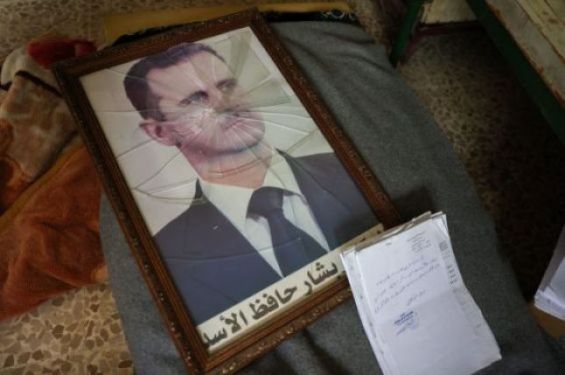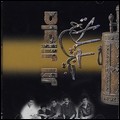On December 8, 2024, the Arab Baʿth Party regime, which had ruled Syria since 1963, collapsed following the entry of armed opposition forces into Damascus and the escape of former President Bashar al-Assad and his family to Russia.
The Ba'ath Party rose to power in Syria through a coup in 1963. Hafez al-Assad, Bashar al-Assad's father, later consolidated power through an internal party coup in 1970, becoming president in 1971. After his death in 2000, Bashar al-Assad assumed the presidency.
Under Ba'ath Party rule, relations between Syria and Morocco were marked by coldness, stagnation, and even hostility. The Assads, both Hafez and Bashar, were not on good terms with Morocco's late King Hassan II or King Mohammed VI.
The Ba'ath Party's hostility toward Arab monarchies stemmed from its Arab nationalist and socialist ideology, which aligned it more closely with socialist-leaning regimes like Algeria's.
Former Syrian Vice President and long-time Foreign Minister Abdul Halim Khaddam once revealed that relations between Syria and Morocco were frozen during the 1960s due to the influence of Ba'athist and Nasserist ideologies. He admitted that Syria had supported Moroccan opposition movements through Ba'athist cells operating clandestinely and aided Moroccan students affiliated with leftist ideologies, granting them scholarships to study in Damascus.
A new chapter
Despite Syria's initial hostility, Hassan II's regime tried to mend ties during a 1972 visit by Khaddam. The Moroccan king reportedly pledged to send troops to support Syria in a potential war with Israel, despite political tensions within Morocco.
Khaddam recalled his surprise at Hassan II’s warmth, stating, «The image we had of King Hassan II was frightening, of a king who suppresses and kills. But after sitting with him, I found him to be a modern and profound man, keen on supporting Syria». Hassan II reportedly declared, «We do not have oil, but we have forces that we will send to support Syria».
In February 1972, Hassan II announced plans to dispatch Moroccan troops to Syria. «My dear people, we have decided, as I informed you, to send, starting from the beginning of March, hundreds of our armed forces and dozens of our military vehicles through Algeria and its port to brotherly Syria», said the late King in a speech. «We wished to deliver this speech to call upon all our people to volunteer, knowing that in every house and home, regardless of what anyone says, writes, or fabricates, the feelings of Moroccans are united in support of Arab causes», he stated.
Moroccan soldiers arrived months before the Yom Kippur War, a 1973 Arab–Israeli War fought from October 6 to 25 between Israel and a coalition of Arab states led by Egypt and Syria, fighting alongside Syrian forces. However, the Syrian military left Moroccan troops vulnerable to Israeli air attacks, resulting in heavy casualties.
Back to black
Relations soured again in 1980 when Syria became the second Arab country to recognize the self-proclaimed Sahrawi Arab Democratic Republic (SADR). The situation deteriorated further after Hassan II hosted Israeli Prime Minister Shimon Peres in 1986, prompting a hostile response from Hafez al-Assad and Libya’s Muammar Gaddafi.
The Syrian and Libyan leaders formed a front against King Hassan II and issued a statement condemning his meeting with an Israeli official.
In response, King Hassan II stated that Morocco would have ignored the emotional remarks of Assad and Gaddafi had they been expressed spontaneously in a moment of anger. However, the fact that they formalized their sentiments in a written statement indicated «bad faith and a deliberate intention to escalate tensions with Morocco».

By the late 1980s, relations improved slightly, with Hafez al-Assad attending the 1989 Arab Summit in Morocco. Hassan II’s 1992 visit to Syria marked another milestone, although protocol changes by Assad—such as his absence at the airport reception—dampened the gesture. Hassan II’s first stop upon arrival was the Martyrs' Cemetery, where he paid tribute to Moroccan soldiers who had died defending Syrian territory in the Golan.
The Arab Spring: Back to square one
Relations between the two countries ebbed and flowed until March 2011, when Syrians began demanding the fall of Bashar al-Assad's regime. This coincided with widespread protests across many Arab countries during the so-called Arab Spring, prompting Morocco to take a firm stance against Assad's regime.
In December 2012, Morocco hosted the «Friends of the Syrian People Conference» in support of the Syrian opposition. The conference culminated in the recognition of the Coalition of Syrian Revolutionary and Opposition Forces as the «sole legitimate representative of the Syrian people and an organizational umbrella uniting the spectrum of the Syrian opposition».
Morocco has frequently clashed with diplomats from Assad's regime in various UN forums, firmly opposing its actions. Furthermore, the kingdom was among the Arab countries that resisted the return of Assad's regime to the Arab League following its suspension in 2011.
Morocco also set several conditions for any potential reconciliation, including an end to Damascus' support for the Polisario Front and recognition of Morocco's territorial integrity.
On Sunday, the opposition launched a military operation from the north of Syria, aiming to reach Damascus and topple the Assad family regime, which has ruled the country for over five decades.





 chargement...
chargement...













